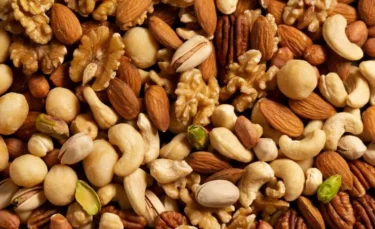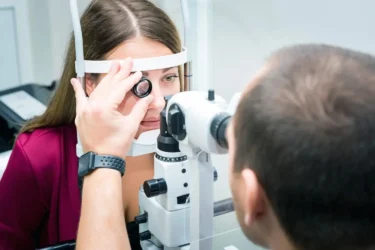Can Home Remedies Help With Cataracts?
By Dr. Shital Sharad Lalwani +2 more

Get,

to manage your symptom
Get your,


4 Cr+ families
benefitted

OTP sent to 9988776655



You’ve successfully subscribed to receive
doctor-approved tips on
Whatsapp

Get ready to feel your best.

Hi There,
Download the PharmEasy App now!!


Register to Avail the Offer
Send OTPBy continuing, you agree with our Privacy Policy and Terms and Conditions

Hi There,
Sign up on PharmEasy now!!
Trusted by 4 crore+ families

OTP sent to 9988776655



You have unlocked 25% off on medicines




Code: NU25
By Dr. Shital Sharad Lalwani +2 more
Table of Contents
Cataracts may not be life-threatening, but they can impair your eyesight if not treated on time. It is a very common disorder and clarity of eyesight can easily be restored with a simple surgical procedure1. The good news is that there are natural methods that you can use to help reduce cataract risks. If you are looking for home remedies and natural ways to deal with your cataract better, you are at the right place. In this article, we will discuss some home remedies and lifestyle changes that can help lower the risks of cataracts as well as be helpful for a person with cataracts.
Age-related changes and other medical conditions cause proteins and fibers within the lenses to break down and clump together, which leads to clouding of the lenses of the eyes. In this condition, the opaque and cloudy lens partially blocks and scatters the light passing through it, leading to blurred vision. Although you can develop cataracts in both eyes, they usually do not develop at the same time. Cataracts are more common in older people2.

Common symptoms of cataracts include4:
Most people begin developing cataracts around the age of 40. Most people become aware of the symptoms after the age of 60. Cataracts are rarely seen at birth. Cataract development can, however, be influenced by certain factors:
There are no proven results of home remedies or natural ways to cure cataracts. However, according to studies, there are a number of home remedies and natural ways that can help with the symptoms of cataracts and may also reduce the risks of Cataracts. These home remedies promote good health of the eyes and can be helpful for you. Here are the top 10 home remedies to know for cataracts:
Home remedies can help in delaying the progression of cataract and help in preventing it. But once a cataract is developed it has to be treated surgically by an Ophthalmologist.
Dr. M.G. Kartheeka, MBBS, MD (Pediatrics)

The consumption of fruits and vegetables that are rich in antioxidants can help protect the eyes from cataract-causing oxidative stress4. Additionally, antioxidants help in protecting your eyes from the formation of cataracts by maintaining the enzymatic pathways. Add plenty of fresh fruits and vegetables to your diet.

Vitamin E is an antioxidant found in nuts and seeds that protects the cells of the eye membranes from free radical damage. The health of your eyes can be improved by eating nuts such as almonds, walnuts, hazelnuts, peanuts, and sunflower seeds. These, along with fatty fish, are a good source of omega-3 fatty acids6.

Sun exposure can lead to a cataract developing in the eye if the eyes are exposed to harmful UV rays. The ultraviolet light can cause the proteins in the eye to oxidize. Sunlight’s UV rays increase the risk of cataracts the more your eyes are exposed to it. If you are outdoors, you should wear sunglasses in order to protect your eyes from ultraviolet light. A pair of sunglasses should block at least 99% of UVA and UVB radiation7. This can help with the risks of a cataract.

There are some lifestyle habits that can increase your risk of developing cataracts. Smoking and alcohol consumption both contribute to this risk. Alcohol consumption is associated with a moderate risk of cataracts, according to studies. Drinking more frequently tends to increase the risk. The risks of cataracts are also greater for smokers compared to nonsmokers. Cutting down on both smoking and alcohol can help with the risks of cataracts.

A dehydrated body can accumulate toxins, which can increase health problems. The body detoxifies and flushes out toxins when you drink enough water. Drinking enough water helps keep your body as well as your eye health safe.

Even if you don’t have any symptoms, an eye examination at regular intervals is essential, especially after the age of 40. Your doctor can check for signs of cataracts, glaucoma, macular degeneration, and other vision disorders during routine visits. Consequently, early intervention can be instituted and eye health and vision problems can be addressed more effectively.

People with uncontrolled diabetes are at a higher risk of developing cataracts8. Take your medications on time and monitor your blood sugar regularly to reduce the risk of further complications.
There’s no right time to go for a cataract surgery, it all depends on the degree of blurred vision, lifestyle preferences, and personal choices. Sudden vision loss is an indicator to visit your ophthalmologist.
Dr. Ashish Bajaj, M.B.B.S., M.D. in Clinical Pharmacology and Toxicology
There are many ways that may help to reduce your risk of getting cataracts, but none of these guarantees 100% prevention. Maintaining a healthy diet and lifestyle can prove beneficial for your eyes and body. But regular health checkups play an equally important role in detecting cataracts early on. This can help your doctor address the underlying causes and help you manage the condition better.
A kitchen herb, saffron, is also known for helping with the symptoms of cataracts, along with fennel. Saffron may also help slow down eyesight degeneration among the elderly. This, however, depends on various other health factors of an individual and may not work similarly in every case.
Unfortunately, no. The only way to get rid of cataracts completely is through cataract surgery. However, there are some ways your doctor can tell you to slow down the progress of cataracts if needed.
Ans. In order to keep a healthy diet, it’s important to avoid processed foods, fried foods, sugary snacks, and soft drinks, all of which are linked to an increased risk of cataracts and other health problems like diabetes.
1. National Eye Institute. Cataracts [Internet]. Bethesda (MD): National Institutes of Health; c2024 Dec 10 [cited 2025 Nov 24]. Available from: https://www.nei.nih.gov/learn-about-eye-health/eye-conditions-and-diseases/cataracts
2. Nizami AA, Gurnani B, Gulani AC. Cataract. [Updated 2024 Feb 27]. In: StatPearls [Internet]. Treasure Island (FL): StatPearls Publishing; 2025 Jan-. Available from: https://www.ncbi.nlm.nih.gov/books/NBK539699/
3. National Eye Institute. Causes of Cataracts [Internet]. Bethesda (MD): National Institutes of Health; c 2024 Dec 5 [cited 2025 Nov 24]. Available from:https://www.nei.nih.gov/learn-about-eye-health/eye-conditions-and-diseases/cataracts/causes-cataracts
4. NHS. Cataracts in adults [Internet]. London: NHS; reviewed 12 March 2025 [cited 2025 Nov 24]. Available from:https://www.nhs.uk/conditions/cataracts/
5. Falkowska M, Młynarczyk M, Micun Z, Konopińska J, Socha K. Influence of Diet, Dietary Products and Vitamins on Age-Related Cataract Incidence: A Systematic Review. Nutrients. 2023 Oct 28;15(21):4585. doi: 10.3390/nu15214585. PMID: 37960238; PMCID: PMC10650191. Available from: https://pmc.ncbi.nlm.nih.gov/articles/PMC10650191/
6. Kaur A, Gupta V, Christopher AF, Malik MA, Bansal P. Nutraceuticals in prevention of cataract – An evidence based approach. Saudi J Ophthalmol. 2017 Jan-Mar;31(1):30-37. doi: 10.1016/j.sjopt.2016.12.001. Epub 2016 Dec 18. PMID: 28337060; PMCID: PMC5352946. Available from: https://pmc.ncbi.nlm.nih.gov/articles/PMC5352946/
7. Roberts JE. Ultraviolet radiation as a risk factor for cataract and macular degeneration. Eye Contact Lens. 2011 Jul;37(4):246-9. doi: 10.1097/ICL.0b013e31821cbcc9. PMID: 21617534. Available from: https://pubmed.ncbi.nlm.nih.gov/21617534/
8. Bixler JE. Cataracts and Their Treatment in People with Diabetes. In: Prevention and Management of Diabetes-Related Eye Disease. Arlington (VA): American Diabetes Association; 2019 May. Available from: https://www.ncbi.nlm.nih.gov/books/NBK544518/ doi: 10.2337/db20191-6
Disclaimer: The information provided here is for educational/awareness purposes only and is not intended to be a substitute for medical treatment by a healthcare professional and should not be relied upon to diagnose or treat any medical condition. The reader should consult a registered medical practitioner to determine the appropriateness of the information and before consuming any medication. PharmEasy does not provide any guarantee or warranty (express or implied) regarding the accuracy, adequacy, completeness, legality, reliability or usefulness of the information; and disclaims any liability arising thereof.
Links and product recommendations in the information provided here are advertisements of third-party products available on the website. PharmEasy does not make any representation on the accuracy or suitability of such products/services. Advertisements do not influence the editorial decisions or content. The information in this blog is subject to change without notice. The authors and administrators reserve the right to modify, add, or remove content without notification. It is your responsibility to review this disclaimer regularly for any change
Comments

Leave your comment...
You may also like
Comments